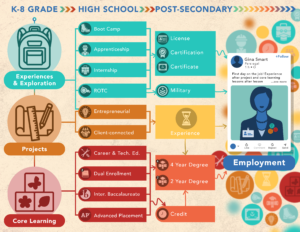Feds propose to make it harder to fund start ups
There is little public or private investment in innovation. As pointed out this week, federal spending on edu-R&D is a fraction of what they do in other sectors. Private investors—angel, venture, and private equity—are also leery of a fragmented market that is difficult to penetrate. It’s difficult for edu-entrepreneurs to put together enough funding to demonstrate an innovation much less bring it to scale. And it’s about to get harder.
Fred Wilson’s post on venture capital and public policy pointed me to a letter by William Carleton & Joe Wallin that summarizes the proposed change to Reg D:
Earlier this month, Senator Dodd posted a discussion draft of the Restoring American Financial Stability Act of 2009. At over 1,000 pages, it is not a light read. Buried on page 686-687 of the draft is a proposed repeal of the federal pre-emption of state laws regulating accredited investor securities offerings under Regulation D. Reg D offerings make it possible for companies raising small amounts of capital to do so safely, quickly and efficiently. This aids in job creation. America’s next great companies are being funded right now with very small amounts of capital. It’s feasible to raise capital in such small amounts, while still protecting investors who need protecting, because of Reg D.
Fred summarizes the implications:
The angel funding mechanism is potentially the single most important funding mechanism in startup land. Most entrepreneurs get their first real investments from angels, not VCs. If you lower the amount of angel capital in startup land, you’ll end up lowering the number of entrepreneurs who can get their projects off the ground.
Startups are the primary source of job growth. Startups are the primary source of innovation in education. For both reasons, making it harder for entrepreneurs to fund their startups is a bad idea.








Amit Shah
I follow yur blog posts daily and this is the most frightening news I've heard recently. Edu-startups, especially in k-12 sectors (more precisely in 6-12 segment) can bring about the "game-changer" business model with the necessary content and delivery mechanism ---but not without financial assistance.
William Carleton
Tom, excellent summary. Thank you for helping us get the word out on this point. There are other things the gov't could do to help small business and innovation, including a zero percent tax on capital gains on qualified small business stock (as my buddy Joe Wallin has pointed out was once an Obama Administration proposal). But turning back the clock on Reg D, in a way that is working, that is not helpful.